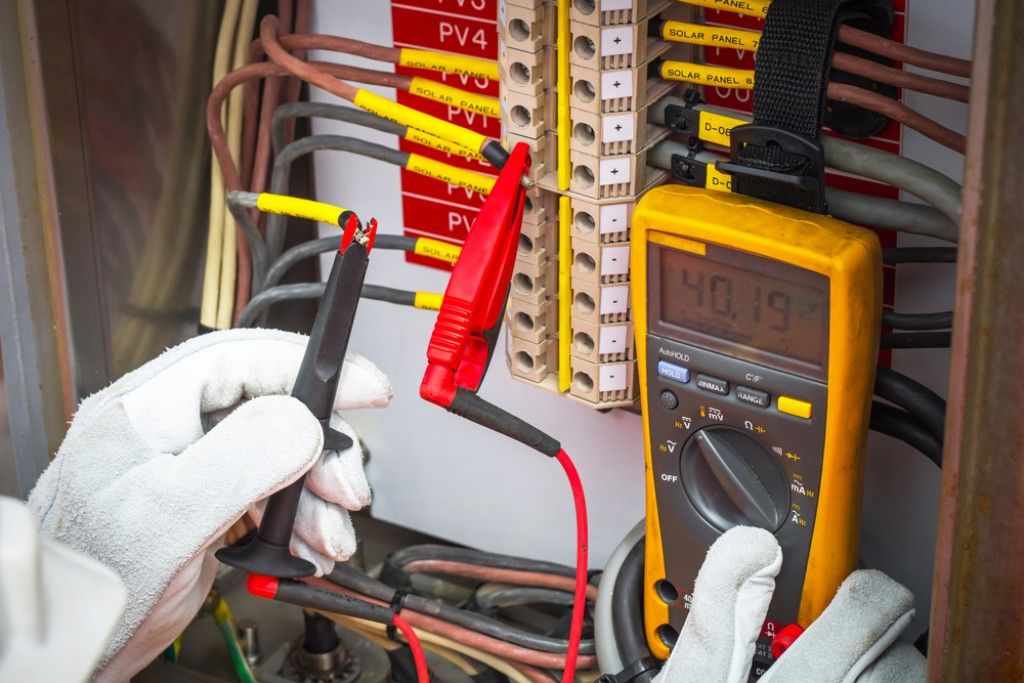
In the dynamic landscape of business operations, electrical compliance is a critical aspect that often demands attention but is not always fully understood. For businesses in Australia, navigating the complexities of electrical compliance is essential to ensure not only the safety of employees and customers but also to adhere to legal requirements.
In this blog, we will delve into the key components of electrical compliance, shedding light on its significance and providing businesses with actionable insights to stay compliant in the Australian market.
So, let’s start with the basics…
The Importance of Electrical Compliance:
a. Safety First: Prioritising the safety of personnel, customers, and property
Electrical compliance is crucial for ensuring the safety of individuals and property. By adhering to standards and conducting regular safety checks, businesses minimize the risk of accidents, electric shocks, and fires, fostering a secure environment for employees and customers.
b. Legal Obligations:
Compliance with Australian electrical standards are a legal obligation for businesses. Understanding and adhering to regulations, such as the AS/NZS 3000, ensures legal compliance, avoiding fines and legal repercussions. Compliance certificates serve as essential documentation for meeting these requirements.
c. Reputation Management:
Electrical compliance is a cornerstone of a positive business reputation. Prioritizing safety not only demonstrates ethical practices but also builds trust with customers, employees, and stakeholders. Conversely, non-compliance can lead to negative publicity, damaging a business’s image and eroding trust in the market.
Townsville Electrical Standards and Regulations:
Navigating electrical standards and regulations in Townsville requires a localized understanding of the specific guidelines governing electrical installations in the area. Here is a breakdown:
a. Townsville’s Wiring Rules:
In Townsville, adherence to local wiring rules is fundamental for electrical installations. These rules are tailored to the unique needs and considerations of the area, covering aspects such as equipment selection, wiring systems, and safety measures.
b. Townsville-Specific Regulations:
In addition to national and state standards, Townsville may have specific regulations that businesses must follow. It is crucial to be aware of and comply with these local requirements to ensure that electrical installations meet the standards set by the Townsville community.
c. Local Compliance Certificates:
Local electricians in Townsville issue compliance certificates, confirming that electrical work aligns with both national and Townsville-specific regulations. These certificates serve as essential documentation for regulatory compliance, insurance purposes, and legal requirements.
For businesses operating in Townsville, staying updated on the latest revisions and local variations in electrical standards is key. Regular communication with local electricians and authorities ensures that businesses maintain compliance with the unique electrical regulations of the Townsville region. This commitment to local standards contributes to the safety and reliability of electrical installations in the community.
Regular Inspections and Maintenance:
Effective and proactive management of electrical systems involves regular inspections and maintenance to ensure safety and prevent potential issues. Here is why it is crucial:
a. Periodic Checks:
Regular electrical inspections are vital for identifying and addressing potential hazards before they escalate. These periodic checks assess the condition of wiring, equipment, and systems, helping businesses stay ahead of any issues. By identifying and rectifying problems early, businesses can prevent accidents, ensure compliance with regulations, and maintain a safe working environment.
b. Preventive Maintenance:
Preventive maintenance goes beyond routine inspections to actively address and rectify potential issues. By conducting industrial electrical maintenance, businesses minimize the risk of electrical faults and failures, reducing downtime and avoiding costly repairs. This proactive approach enhances the reliability and longevity of electrical systems, contributing to the smooth and uninterrupted operation of business activities.
c. Record-Keeping:
Documenting each inspection and maintenance activity is essential for regulatory compliance and organizational transparency. Comprehensive record-keeping provides a historical overview of the electrical system’s condition, facilitating better decision-making and demonstrating a commitment to safety. In an audit or incident, well-maintained records serve as valuable documentation to prove compliance with standards and highlight a proactive approach to electrical system management.
Upgrading for Compliance:
a. Identifying Outdated Systems:
Periodically evaluating the age and performance of electrical systems helps businesses identify outdated components or systems that may not comply with current standards.
b. Energy Efficiency:
Upgrading for compliance provides an opportunity to enhance energy efficiency. Businesses can incorporate modern, energy-efficient technologies during upgrades, reducing environmental impact and operational costs.
c. Government Incentives:
Governments often offer incentives to businesses upgrading their electrical systems to meet compliance standards. Exploring these incentives can provide financial benefits, making compliance upgrades a strategic investment.
Navigating Changes and Updates:
a. Staying Informed:
Staying informed about updates is crucial for ensuring ongoing compliance. Regularly checking for changes in standards and regulations helps businesses adapt swiftly, avoiding potential legal issues and maintaining a commitment to safety.
b. Adapting to Technological Advances:
Adapting to technological advances allows businesses to incorporate innovative tools and systems that improve efficiency and safety.
c. Seeking Professional Guidance:
Engaging with professional full service electrical contractors helps businesses navigate changes effectively, reducing the risk of misinterpretation and ensuring that upgrades align with the latest industry best practices.
Conclusion:
In conclusion, maintaining electrical compliance is not just a legal requirement but a crucial element in creating a safe and reliable business environment. To safeguard their interests, protect their stakeholders, and contribute to the overall well-being of the community, businesses must consult reliable Commercial Industrial Electrician. Regular updates, proactive measures, and a commitment to safety are the pillars upon which businesses can build a sturdy foundation for electrical compliance.
As businesses in Australia strive to meet these standards, one reliable ally in North Queensland is Voltec Services Pty Ltd. Comprising a team of dedicated electrical and communications technicians, Voltec Services holds expertise in security, surveillance, electrical, audio-visual, and communications. Passionate about delivering exceptional service and outcomes, they specialize in installation and maintenance for both commercial and industrial clients.
Contact our team today!